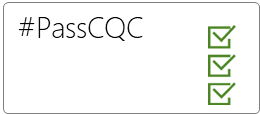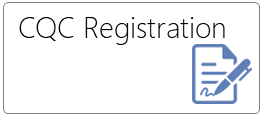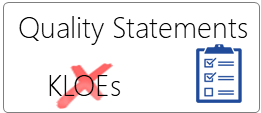10 things to do leading up to the inspection
There are very few people who would not feel any stress at all of an impending CQC visit when most GP practices will be given little or no notice before an inspection under the proposals for the new (yet again) inspection model.
We have been undertaking compliance audits for private clients for the last 8 years and based on this first-hand experience we have listed out below our recommendation for how you utilize this time to make your life as stress free as possible.
1. Get a ‘Deep Clean’ of your practice
When you know guests are coming over, do you go around and clean your house to make it perfectly presentable, or are you comfortable showing how you really live with no apologies? A CQC visit is very similar; it’s about putting your best foot forward.
If you don’t already use them, get a professional cleaning service who specialise in GP surgeries, to make sure that the practice is thoroughly spring cleaned.
Infection control walks hand in hand with cleaning. Ask your infection control lead to carry out a quick infection control audit so that nothing is missed.
2. Medicines Management
Ensure that your fridge monitoring temperature logs are available and discard any out of date medicines. Also ensure that there are no medicines ‘lying’ around in clinical rooms or patient accessible areas.
Handy Hint: One thing that tends to get over-looked is out of date hand sanitizers
3. Notice Boards
These are highly effective communications tools which are frequently underutilized.
Public Notice Board
Purge the notice public boards of all old and dog eared notices and replace with current information.
Remember, one out of date poster undermines the relevancy of all other information.
Staff Notice Boards
For our audits this is usually our first port of call.to see what things have been achieved, and how well informed your staff are. E.g. your work place risk assessment pinned to the notice board gives assurance that not only have you conducted the Risk assessment but have ensured that staff are aware of the risks.
Things that you may consider displaying are
• Statutory notices (required by law)
• Current employers liability insurance
• Workplace Risk Assessment
• Health & Safety Law Poster
• Safe Working Practices poster
• Manual Handling techniques poster
• Fire extinguishers – what the different types are for and how to use them
• Health and Safety Policy
Staff notice board also act as a good reference point on the day of inspection as staff are able to refer to information quickly and easily.
Handy Hint: To save time, start using expiry dates on notices so that they can be binned when no longer relevant.
4. Informing your staff about the CQC Inspection
Only inform the key members of your team about the inspection.
Try not to tell everyone about impending visit as it tends to stress out some people for fear of saying or doing the wrong thing on the day. It has been our experience that some staff will even call in sick on the day, leaving you short-staffed.
5. Staff Meeting
Whilst we recommend that you shouldn’t be telling all staff about the planned CQC inspection, do call everyone in for a staff session and go through short re-training sessions on essential items e.g.
- Signing in procedures
- Infection control
- Hand Hygiene
- Safeguarding
- Confidentiality and IG Governance
6. Reschedule Appointments
During the visit the CQC inspector will want to talk to the clinicians. Though most will wait to catch them during breaks etc. you might want to consider re-scheduling appointments for the day of the visit so that there is a clear break.
Whether we admit it or not, we all have those ‘difficult’ patients that we’d rather were not present on the day of the inspection. . Consider re-scheduling their appointment, try and see them before or after the visit.
7. Love Bomb patients
An easy way of getting patients on side is by giving out patient information leaflets over the 48 hours, and so that it becomes a habit, and on the day of the inspection if a patient is interviewed they have no reason not to know all about your practice and what services are available to them.
8. Hand Hygiene
Get everyone to religiously start sanitizing their hands and disinfecting touch screens. Helps create an impression that you take infection control seriously.
9. What to do with non-performing staff?
You’re Only as Strong as your Weakest Link, is true of your organisation.
If a member of staff is under a performance notice, or there is brewing dissent, it would be advisable to not have that member of staff on site. You can explain this to the inspector if the issue is raised.
This is a good way to review your practices own attitude to staff. If you have someone who is going to be letting the rest of the team down, it begs the question, why they are working for you. We often get too close to staff, especially long standing staff, and lose sight of hard decisions about what's best for the practice and patients.
10. Get your evidence files in order
Editor's comment
A CQC inspector attending one of our seminars protested that some of the advice we give might be bordering on unethical because it encourages practices to game the system.
This demonstrates the contradictory policies of the CQC. To observe 24/7/365 compliance, a true audit and inspection is one where the inspection takes place with minimal or zero notice. If the provider is given any prior warning, this is tantamount to giving licence to prepare and fix things before the visit. The longer that licence, the more lattitude you are giving.
CCGs are given 4 weeks notice of CQC inpections in their areas and GPs given 2 weeks' notice, if not more. As far as we know, only GPs are given this privillege, and this in effect skews the inspection heavily in favour of the provider, and is in itself an open licence to game the system.
In the real world, if you give advance notice of an audit or an inspection, you can expect the provider to make the best use of that time to prepare for the inspection. No reasonable and intelligent provider will freeze their activities and hang out the warts just so that an inspector has lots to report.




